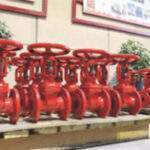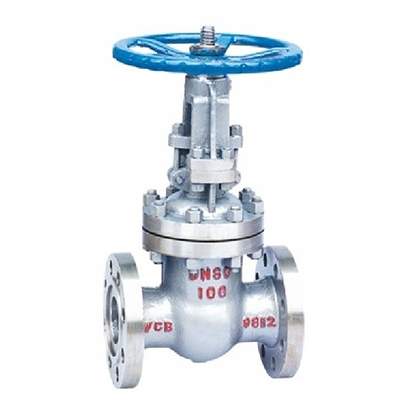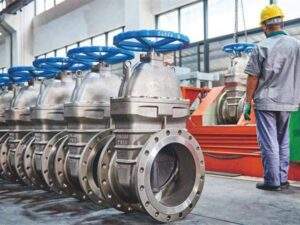Welcome to My Blog!
Before we dive into the content, I’d love for you to join me on my social media platforms where I share more insights, engage with the community, and post updates. Here’s how you can connect with me:
Facebook:https://www.facebook.com/profile.php?id=61563865935136
Now, let’s get started on our journey together. I hope you find the content here insightful, engaging, and valuable.
Introduction
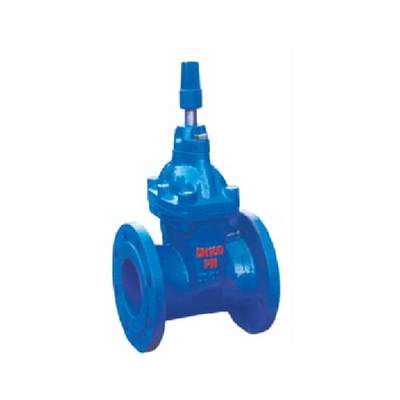
Resilient seal gate valves are critical components in modern fluid control systems, designed to provide reliable shut-off and minimal leakage in various industrial and municipal applications. Unlike traditional metal-seated gate valves, resilient seal gate valves feature a rubber-encapsulated wedge or gate, ensuring a tight seal evenunder fluctuating pressures and temperatures. This blog explores the essential aspects of resilient seal gate valve use, from their design and benefits to maintenance and applications, offering valuable insights for engineers, procurement professionals, and facility managers. Fanlei, a leading valve manufacturing company specializing in high-quality, versatile valve solutions, is proud to share expertise on how these valves enhance system efficiency and durability.
What Is a Resilient Seal Gate Valve?
Definition and Core Components
A resilient seal gate valve is a type of isolation valve used to control the flow of fluids by raising or lowering a gate, typically a wedge-shaped disc, within a pipeline. The defining feature is the resilient seal, often made of materials like EPDM or NBR rubber, which coats the gate to ensure a leak-tight closure. Key components include the valve body (usually cast iron or ductile iron), the stem, the resilient-coated gate, and the bonnet, all engineered for durability and smooth operation. Fanlei’s resilient seal gate valves are crafted with precision to meet international standards like ISO 5996 and AWWA C515, ensuring compatibility across diverse systems.
How It Differs from Metal-Seated Gate Valves
Unlike metal-seated gate valves, which rely on metal-to-metal contact and are prone to wear and leakage over time, resilient seal gate valves use a flexible rubber seal to achieve zero leakage. This design reduces operating torque, minimizes corrosion, and extends service life, making them ideal for waterworks, wastewater treatment, and other fluid systems. The ANSI/AWWA C509 and C515 standards highlight the superior sealing and reduced maintenance needs of resilient seal gate valves compared to their metal-seated counterparts.
Why Choose Resilient Seal Gate Valves?
Superior Sealing Performance
The rubber-encapsulated gate in a resilient seal gate valve ensures a tight seal, even in systems with debris or sediment. This feature eliminates the allowable leakage common in older metal-seated designs, as noted in the AWWA C500 standard. Fanlei’s resilient seal gate valves undergo rigorous leak testing to guarantee compliance with industry benchmarks, providing peace of mind for critical applications.
Reduced Maintenance and Longevity
Resilient seal gate valves require less maintenance due to their corrosion-resistant materials and low-friction design. The rubber seal protects the gate from direct contact with the fluid, reducing wear and extending the valve’s lifespan. This durability translates to lower lifecycle costs, making them a cost-effective choice for municipalities and industries.
Versatility Across Applications
From potable water distribution to industrial fluid management, gate valves are versatile enough to handle a wide range of fluids, including water, wastewater, and neutral liquids. Their ability to operate under varying pressures and temperatures makes them a go-to solution for diverse sectors, including HVAC, fire protection, and chemical processing.
Key Design Features of Resilient Seal Gate Valves
Material Selection for Durability
The choice of materials is critical to the performance of gate valves. Fanlei uses high-grade ductile iron for valve bodies, paired with stainless steel stems and EPDM or NBR rubber for the resilient seal. These materials ensure resistance to corrosion, abrasion, and chemical degradation, as outlined in standards like ASTM A536 for ductile iron.
Non-Rising Stem and Flanged Connections
Most resilient seal gate valves feature a non-rising stem design, which reduces the vertical space required for operation, making them ideal for confined spaces. Flanged connections, compliant with DIN or ANSI standards, provide secure integration into piping systems, ensuring leak-free performance under high pressures.
Precision Manufacturing Processes
Fanlei’s manufacturing process for resilient seal gate valves involves precision casting, machining, and heat treatment to achieve tight tolerances and robust construction. These processes enhance the valve’s ability to withstand high-pressure environments while maintaining smooth operation, as emphasized in API and ISO certifications.
Applications of Resilient Seal Gate Valves
Water and Wastewater Systems
Resilient seal gate valves are widely used in water supply and wastewater treatment facilities due to their zero-leakage performance and ability to handle sediment-laden fluids. They are essential for isolating pipeline sections during maintenance or emergencies, ensuring uninterrupted service in municipal waterworks.
Industrial and Fire Protection Systems
In industrial settings, resilient seal gate valves control the flow of process fluids, cooling water, and other media. Their robust design also makes them suitable for fire protection systems, where reliable shut-off is critical for Hawkins. Fanlei’s resilient seal gate valves meet the stringent requirements of NFPA standards, ensuring safety in high-stakes environments.
HVAC and Plumbing Applications
In heating, ventilation, and air conditioning (HVAC) systems, resilient seal gate valves regulate water flow in chillers, boilers, and cooling towers. Their low operating torque and reliable sealing make them ideal for maintaining system efficiency in commercial and residential plumbing setups.
Resilient Seal Gate Valve Specifications Table
| Feature | Description |
|---|---|
| Body Material | Ductile Iron (ASTM A536) or Cast Iron |
| Seal Material | EPDM or NBR Rubber |
| Pressure Rating | PN10, PN16, or 250 PSI (AWWA C515) |
| Temperature Range | -10°C to 80°C (depending on seal material) |
| Size Range | DN50 to DN800 (2” to 32”) |
| Connection Type | Flanged (DIN, ANSI, or JIS standards) |
| Stem Design | Non-Rising or Rising Stem |
| Standards Compliance | ISO 5996, AWWA C509, AWWA C515, EN 593 |
| Cycle Life | Up to 10,000 cycles (depending on operating conditions) |
This table outlines the typical specifications of resilient seal gate valves, as offered by Fanlei, ensuring compatibility with a wide range of industrial and municipal applications.
Installation and Operation Best Practices
Proper Installation Techniques
Correct installation is crucial for the optimal performance of resilient seal gate valves. Ensure the valve is aligned with the pipeline to avoid stress on the flanges, and use appropriate gaskets to prevent leaks. Fanlei provides detailed installation guides compliant with AWWA and ISO standards to simplify the process for engineers and technicians.
Operating Guidelines for Efficiency
Resilient seal gate valves are designed for on-off service, not throttling. Operate the valve fully open or fully closed to prevent damage to the resilient seal. Regular cycling (opening and closing) helps prevent the rubber seal from sticking, especially in systems with infrequent use.
Common Installation Mistakes to Avoid
Avoid over-tightening bolts during installation, as this can distort the valve body and compromise the seal. Ensure the pipeline is clean and free of debris to prevent damage to the resilient seal during initial operation. Fanlei’s technical support team is available to assist with troubleshooting installation challenges.
Maintenance and Troubleshooting
Routine Maintenance Schedules
Regular maintenance extends the life of resilient seal gate valves. Inspect the valve annually for signs of wear, corrosion, or seal degradation. Lubricate the stem and check the torque required for operation, as excessive torque may indicate internal issues. Fanlei recommends following MSS SP-92 guidelines for maintenance protocols.
Identifying and Fixing Common Issues
Common issues include leakage due to debris trapped in the seal or excessive operating torque caused by stem corrosion. Cleaning the valve interior and replacing worn seals can resolve most leaks, while stem lubrication or replacement addresses torque issues. Fanlei’s resilient seal gate valves are designed for easy disassembly, simplifying maintenance tasks.
When to Replace a Resilient Seal Gate Valve
Replace the valve if the resilient seal shows significant wear, the body develops cracks, or the valve fails leak tests after maintenance. Typically, a well-maintained resilient seal gate valve lasts 15-20 years, depending on operating conditions. Fanlei offers replacement parts and full valve units to minimize downtime.
Industry Standards and Certifications
Compliance with Global Standards
Resilient seal gate valves must meet stringent industry standards to ensure safety and performance. Fanlei’s valves comply with ISO 5996, AWWA C509, AWWA C515, and EN 593, covering design, materials, and testing requirements. These standards guarantee compatibility and reliability across global markets.
Importance of Certifications
Certifications like CE, ISO, and WRAS validate the quality and safety of resilient seal gate valves. For potable water applications, WRAS certification ensures the valve materials are safe for human consumption. Fanlei’s commitment to certifications reflects its dedication to delivering high-quality valve solutions.
Fanlei’s Quality Assurance Processes
As a trusted valve manufacturer, Fanlei integrates quality assurance into every stage of production, from material sourcing to final testing. Our resilient seal gate valves undergo pressure, leak, and cycle tests to meet or exceed industry standards, ensuring long-term reliability for our clients.
Environmental and Economic Benefits
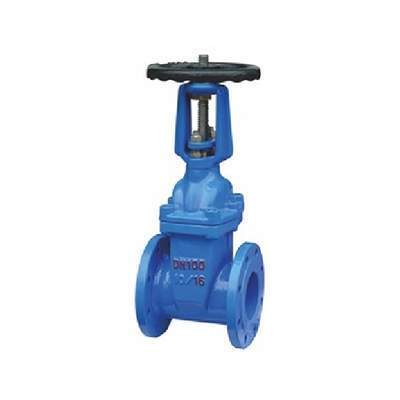
Energy Efficiency and Cost Savings
The low operating torque of resilient seal gate valves reduces the energy required for manual or actuated operation, lowering operational costs. Their long service life and minimal maintenance needs further enhance cost-effectiveness, making them a smart investment for budget-conscious facilities.
Environmental Impact of Resilient Seal Gate Valves
By preventing leaks, resilient seal gate valves minimize water loss in distribution systems, supporting conservation efforts. Fanlei’s use of recyclable materials and eco-friendly manufacturing processes aligns with global sustainability goals, reducing the environmental footprint of our valve solutions.
Long-Term Value for Municipalities
Municipalities benefit from the durability and low maintenance of resilient seal gate valves, which reduce service disruptions and repair costs. Fanlei’s resilient seal gate valves are designed to withstand harsh conditions, ensuring reliable performance in public infrastructure projects.
Conclusion
Resilient seal gate valves are indispensable for reliable fluid control, offering unmatched sealing performance, durability, and versatility across industries. Their low maintenance, compliance with global standards, and environmental benefits make them a preferred choice for waterworks, industrial systems, and beyond. Fanlei’s expertise in designing and manufacturing high-quality resilient seal gate valves ensures long-term value and performance for your projects. Ready to upgrade your fluid control systems? Contact us at Fanlei to explore our resilient seal gate valve solutions today!
FAQ
What is the main advantage of a resilient seal gate valve?
The primary advantage is its zero-leakage performance, achieved through a rubber-encapsulated gate that ensures a tight seal, even in debris-laden fluids, as per AWWA C509 standards.
Can resilient seal gate valves be used for throttling?
No, resilient seal gate valves are designed for on-off service. Throttling can damage the resilient seal, reducing its lifespan. Use globe or control valves for throttling applications.
What materials are used in Fanlei’s resilient seal gate valves?
Fanlei uses ductile iron for the valve body, stainless steel for the stem, and EPDM or NBR rubber for the resilient seal, ensuring durability and corrosion resistance.


